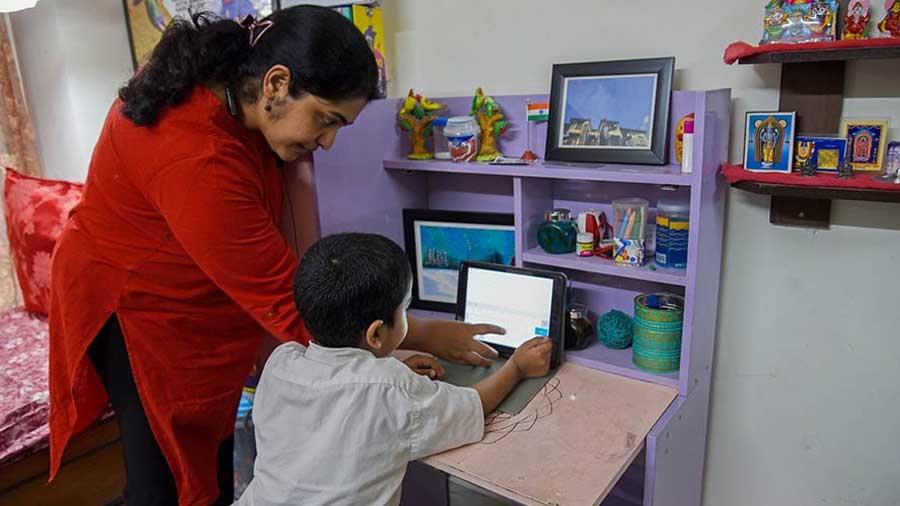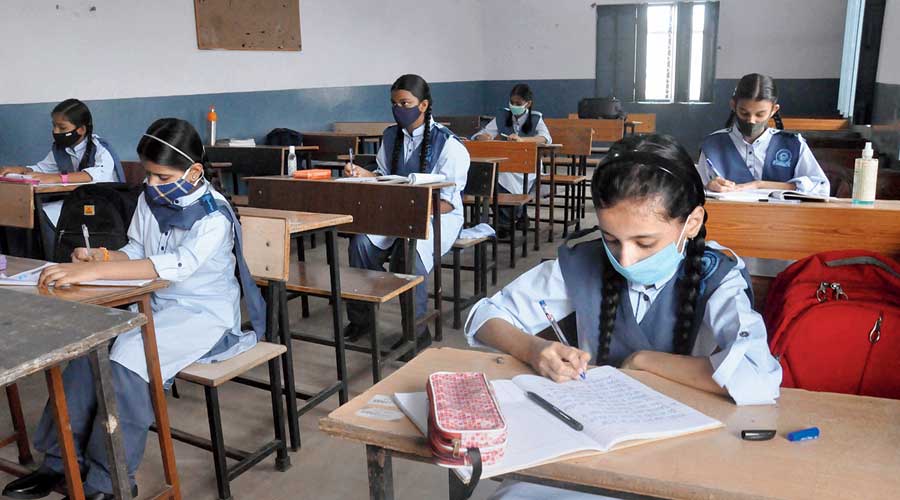Several schools are tweaking their questions to parents during admission interviews to get an idea of how suited the child is for online classes and how involved the parents are.
While interactions take place on the screen, teachers notice whether the parents are using a phone or laptop, which gives them an idea of their access to a device, some interviewers said.
Some interviewers ask the parents questions like how long they would expose their four-year-old to the screen.
Admission interactions are no longer conducted in formal school settings but from bedrooms or living rooms, giving the school easy access to the child's home surroundings.
“With schools moving home, parents have got an X-ray vision into the classroom. The same is now available to schools during online interactions.
When parents would come to school, we would notice how they are dressed. Now, we look at the home setting,” said Nupur Ghosh, the vice-principal of Mahadevi Birla World Academy.
“We do expect children to use a laptop, desktop or at least a tablet for online classes and not a phone, especially because of the amount of time a child has to spend sitting in front of the screen,” said Ghosh.
At Indus Valley World School, one question that parents are asked in the interview is if they have uninterrupted internet service.
“We need to know whether they have access to a good internet connection because in the foreseeable future, classes are to be conducted online,” said director Amita Prasad.
Schools have been shut since March 2020 as a precaution against Covid. Classes are being conducted online, with a brief period of on-campus classes in February for Classes IX to XII.
Schools have faced situations where parents not properly dressed roam about in the background or keep disturbing the class.
“We expect parents to attend the interview from a formal setting. It can be humble but the seating arrangement gives an insight into their approach, which is casual or formal,” said Meena Kak, director, Lakshmipat Singhania Academy.
Schools said the online interaction helps them assess whether the home environment is the same as what the parents have mentioned in the admission form.
“We study the form and see if there is a correlation between what they have written and what we see. Through the online interaction, we can understand whether parents have been honest,” said Jessica Gomes Surana, the principal of Loreto Convent Entally.
Despite students having to spend long hours on devices, schools get requests from parents to increase the number of classes so that the students are engaged for a longer period.
Schools have also had parents demanding more and more online classes so that the child is kept engaged for a longer time, a principal said.
“We also ask parents how long they expose their children to the screen. Some would not mind even if the hours are long but some would come up with alternative suggestions like breaks in between, which shows that they are involved and thinking parents,” said Kak.
It is a tricky situation for parents because there is no option but to let the children be online and interact with each other.
“We try to see whether the parents are setting a limit to the child's screen time,” said Aruna Gomes, the principal of Loreto House.
Most schools expect an adult to be around while the child is attending an online class and yet not be too interfering.
At least two school heads said there were parents who would have put their child in a Montessori in normal circumstances but have arranged for home tuition because of the pandemic. This is preventing the child from learning how to interact socially.
“It is also about developing the right habit or helping the child in social interactions. These children watch YouTube videos but when we show them an image on the screen, they are puzzled. We can understand through this how involved and aware the parents are,” said Ghosh.

